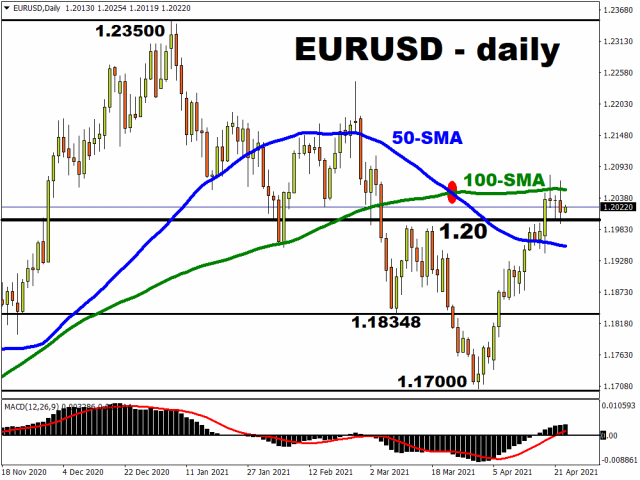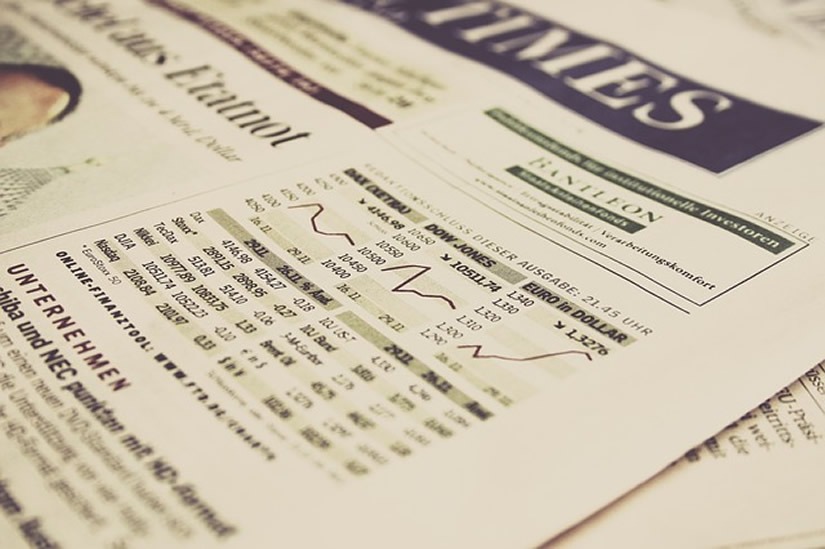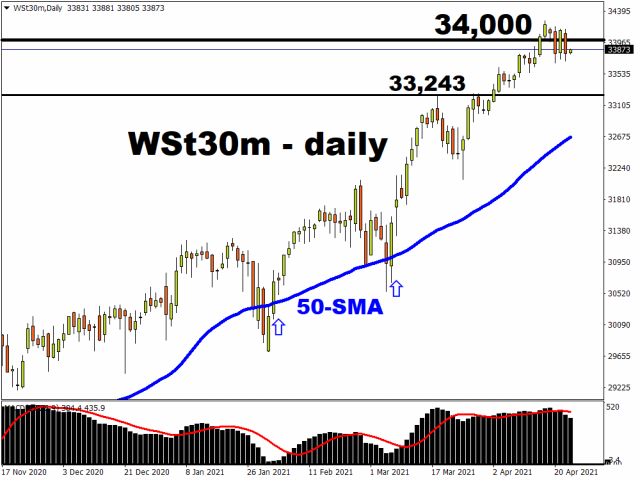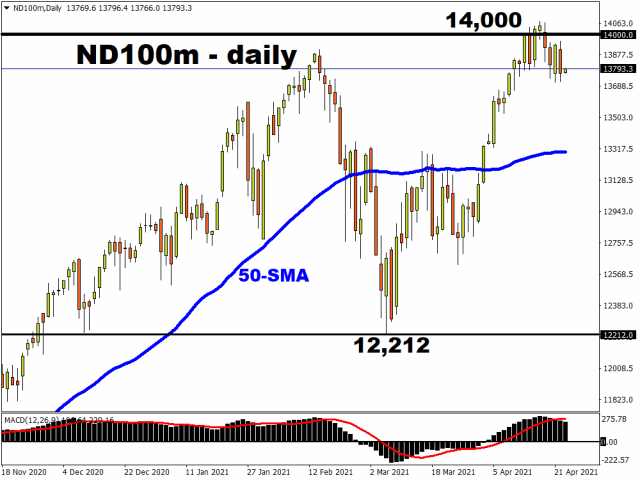By Han Tan Market Analyst, ForexTime
US stocks took a step back on Thursday, amid reports that President Joe Biden could impose a higher capital gains tax rate of 39.6% on individuals earning US$ 1 million or more. Such headlines moved markets into looking past the lowest weekly US jobless claims in a year, and perhaps prompted wealthier investors to book in some profits yesterday before the higher taxes kick in. They’ll surely be eyeing the official tax rate that POTUS will unveil before Congress on 28 April.
Following the news by Bloomberg, the S&P 500 went on to register its biggest single-day drop since 18 March, falling by 0.92% at yesterday’s close. The Dow also declined, shedding 0.94%, led by the materials sector.
US tech stocks took a bigger hit yesterday, with the Nasdaq 100 falling 1.24% to drop below its February cycle highs.
Big Tech companies are seen to be more exposed to the threat of higher tax bills.
Noting that tech giants such as Apple and Microsoft have revealed overseas profits exceeding US$100 billion, they are seen to be prime targets to help fund the Biden administration’s spending plans. Recall also earlier this month, the Treasury Department announced plans to raise the corporate tax from 21% to 28%, although a compromised 25% is likelier to be the final outcome.
Note that these are just proposals at this point in time, and have yet to be passed by lawmakers. Still, given the forward-looking nature of the markets, it hasn’t stopped markets from reacting to such risks. The Biden policy pipeline remains a key risk that global investors will have to continuously monitor.
Despite such bumps along the way, as highlighted in yesterday’s report, stock markets are still expected to explore more of their upside potential.
At the time of writing, the futures contracts for all 3 benchmark US indexes are edging higher.
EURUSD little changed after ECB meeting
The European Central Bank kept its policy settings unchanged at yesterday’s rate meeting, as widely expected, while ECB President Christine Lagarde said little to rock the boat. Lagarde stated that the central bank isn’t yet entertaining the thought of reining in its emergency bond-buying programme, amid green shoots of an economic recovery, buffered by higher vaccination rates and the prospects of 800 billion euros in fiscal stimulus being rolled out later this year.
However, Lagarde did say that the ECB will keep a close eye on the shared currency, considering that a stronger euro could serve as a drag on import prices which would influence inflationary pressures onshore, while making European exports less affordable to its global customers.
Such commentary suggests that the euro might have a tough time matching its highs against the greenback from earlier this year, despite the softer dollar environment that we are witnessing currently. And given that the euro accounts for 57.6% of the benchmark Dollar index (DXY), a euro that is prevented from taking full advantage of the softer buck may in turn offer support for the DXY.
As things stand, the world’s most traded currency pair remains hemmed in by the psychological 1.20 level and its 100-day simple moving average (SMA).

What are markets looking out for on Friday?
Global investors will be eyeing the April preliminary PMI figures out of the US, UK, and the Eurozone today.
These economic data are mostly expected to march further into expansionary territory, as denoted by a print above the 50 line, except for the Eurozone’s services sector.
Even as they digest the latest developments surrounding the pandemic, and also the prospects of higher taxes in the US, market participants who still harbour a healthy appetite for risk-taking activities would be hoping that the optimism surrounding the global economic recovery would remain intact and help stock markets end the trading week on a positive note.
There remain enough reasons to expect further gains for risk assets, considering the continued rollout of the Covid-19 vaccine around the world, and the continued fiscal and monetary policy support across major economies.
Disclaimer: The content in this article comprises personal opinions and should not be construed as containing personal and/or other investment advice and/or an offer of and/or solicitation for any transactions in financial instruments and/or a guarantee and/or prediction of future performance. ForexTime (FXTM), its affiliates, agents, directors, officers or employees do not guarantee the accuracy, validity, timeliness or completeness, of any information or data made available and assume no liability as to any loss arising from any investment based on the same.
 Article by ForexTime
Article by ForexTime
ForexTime Ltd (FXTM) is an award winning international online forex broker regulated by CySEC 185/12 www.forextime.com


